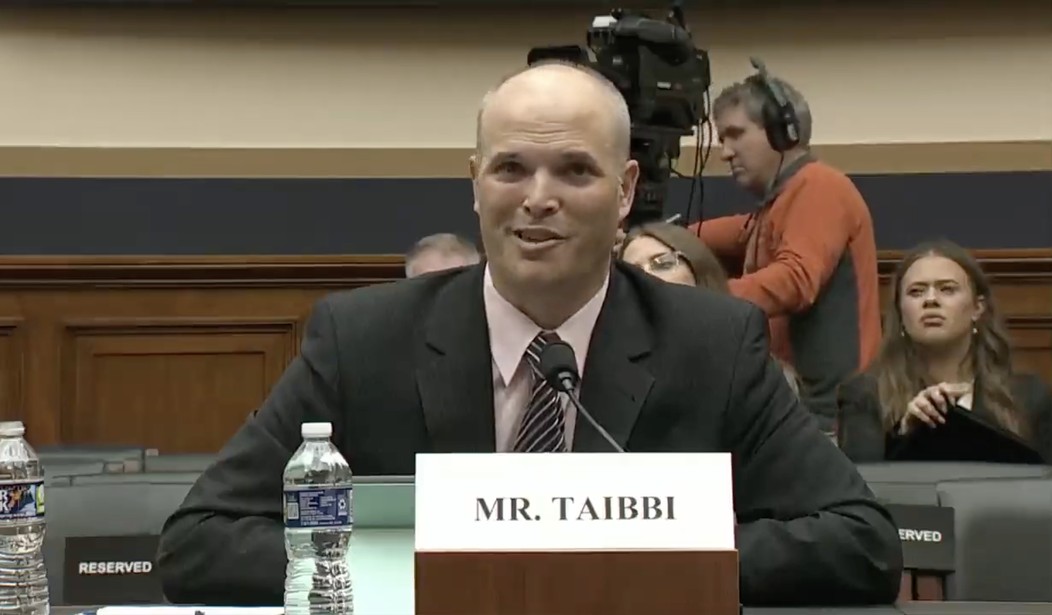Journalist Matt Taibbi has been in the headlines quite frequently over the past year. Being an instrumental part of the revelations from the Twitter Files, he had testified before Congress and been pilloried by the left-wing activist media for exposing the partisan, biased censorship rampant at Twitter before Elon Musk bought the company. His critics are many, but so are his fans, who appreciate that he is willing to engage in a form of journalism that died long ago.
The role of the media in a free society is to provide accurate and impartial information to the public, allowing citizens to make informed decisions. However, according to Taibbi, there is an alarming trend of the media selectively suppressing or omitting information that contradicts the narratives they wish to promote. Taibbi’s comments during an appearance on Newsmax shed light on how the media’s bias and reluctance to cover certain stories undermine their journalistic integrity and the public’s trust.
During the appearance, Taibbi voiced his concerns about the lack of coverage surrounding allegations of influence-peddling against President Joe Biden. He asserted that the media’s failure to report on such matters is a result of it being politically inconvenient.
I think a lot of journalists of an older generation feel the same way, which is, once upon a time, most reporters didn’t really care who was in office. If they were corrupt, if they did something wrong, we’d do the reporting. It didn’t really matter to us. The idea that you would non-report something like the Biden story because it happens to be politically inconvenient would have been inconceivable, I think, in the mainstream press, even a dozen years ago.
One truth about the state of biased media in America that I have always highlighted is that the press typically lies more by omission than commission. This means that left-wing propaganda outlets like CNN, MSNBC, and the rest don’t commonly deceive their audiences by making up stories out of whole cloth. Catching them in their lies would be much easier if they did. Sure, it happens. But far more often, these organizations shape their deceptive narrative by leaving out details and stories that go against their political agenda.
There has been a plethora of examples in recent years. For starters, let’s take the “Fine People” hoax, in which CNN and high-profile leftists cut out part of the footage of the press conference in which former President Donald Trump made the “fine people” comments to make it appear as if he were praising neo-Nazis and the Ku Klux Klan:
Excuse me, they didn’t put themselves down as neo-Nazis, and you had some very bad people in that group. But you also had people that were very fine people on both sides. You had people in that group – excuse me, excuse me, I saw the same pictures you did. You had people in that group that were there to protest the taking down of, to them, a very, very important statue and the renaming of a park from Robert E. Lee to another name.
The problem? CNN and others on the left deliberately cut out the part where Trump says: “I’m not talking about the neo-Nazis and white nationalists because they should be condemned totally.”
They cut that part from the footage because they wanted to fool their audience into believing that Trump digs Nazis.
What about the case of the Covington Kids? Remember how when that story first broke, CNN made it appear as if the children wearing the MAGA hats were swarming a Native American man because they hate brown people? Later, it turned out that the news outlet had left out the fact that Black Hebrew Israelites were hurling epithets and insults at the kids, and the Native American had walked up to the crowd beating on his drum.
There are countless examples.
In these instances, the media didn’t make up a story per se. They just left out the information that contradicted the narrative they wished to promote.
When the media selectively suppresses or omits information, it skews public perception and inhibits discourse. Media outlets can manipulate public opinion by withholding critical information that may contradict their desired narratives, molding it to fit their agenda. The consequences of this distortion can be far-reaching, as it erodes the public’s trust in the media and perpetuates a climate of misinformation.
The media’s deception and manipulation of information have profound consequences for society. It creates a fragmented and polarized media landscape where individuals are exposed to only one side of the story, reinforcing preexisting biases and limiting their ability to engage in critical thinking. Additionally, the suppression of essential stories can shield those in power from accountability and hinder efforts to address systemic issues. In several cases, it also helps the press push the government’s agenda. How much information did the media hold back concerning the COVID-19 pandemic and the drama that came with it?
Taibbi’s comments shed light on a concerning trend within the media landscape, where narratives are prioritized over truth, and inconvenient information is deliberately left unreported. The implications of such practices have been far-reaching, impacting public perception, democratic discourse, and the overall health of our society. Trust in the media has plummeted over the past decade. Still, the press has managed to continue deceiving the public.













